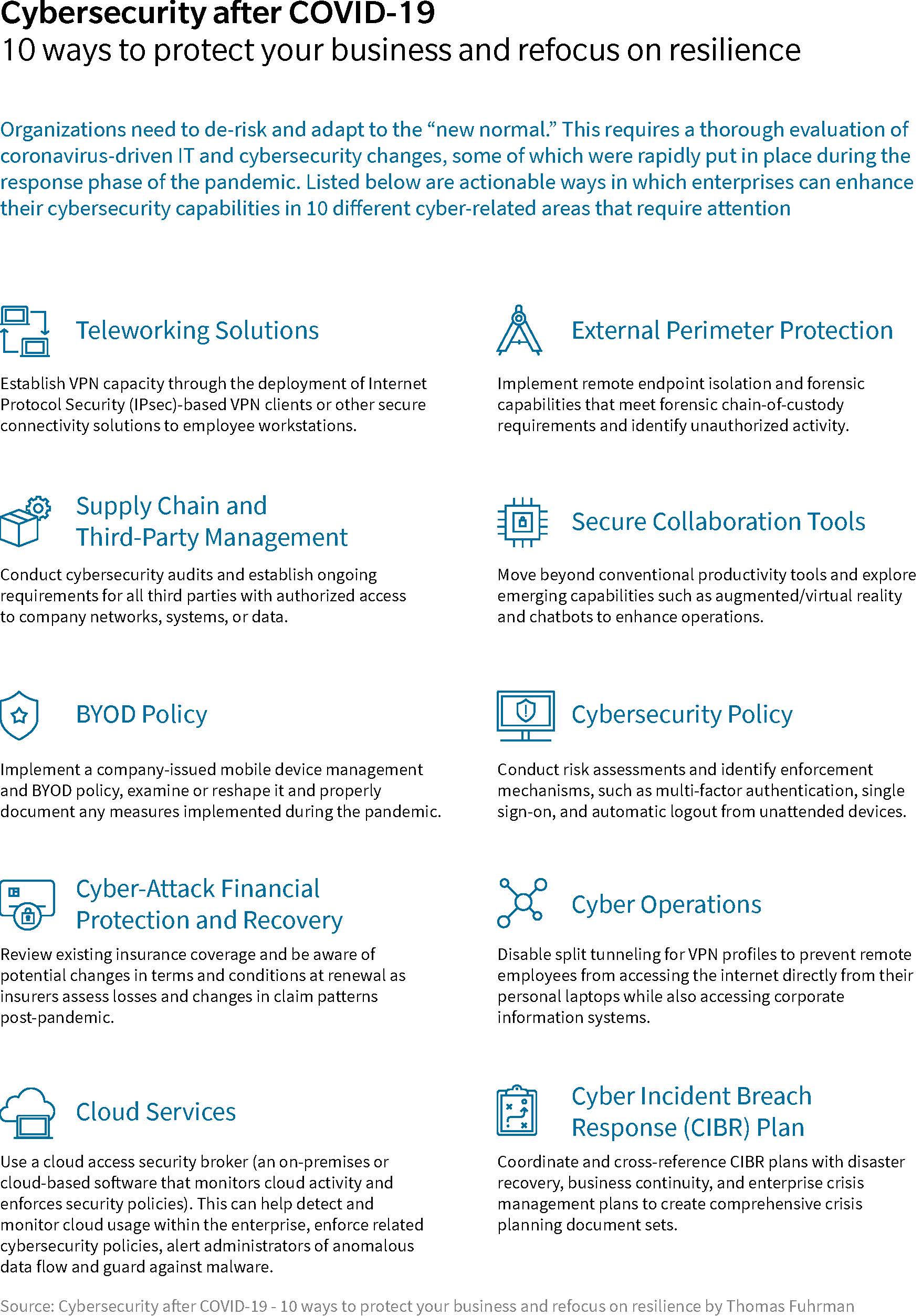Cybersecurity is a growing concern for businesses worldwide, with data breaches and cyber attacks on the rise. It’s critical for companies to take steps to protect sensitive information from compromise. This article provides ten cybersecurity measures that every business should implement to strengthen their security posture. Prominent measures include using strong passwords, two-factor authentication, employee training, data encryption, firewalls, endpoint security, network segmentation, regular backups, incident response plans and regular testing and assessments. By investing in cybersecurity, businesses can protect their data, maintain the trust of their customers and partners and avoid the financial, legal and reputational repercussions of a cyber attack.
10 Cybersecurity Measures Every Business Should Implement
Cybersecurity has become an increasingly important issue in today’s digital world. With data breaches and cyber attacks on the rise, it’s essential for businesses to take the necessary steps to protect their sensitive information from compromise. Here are 10 cybersecurity measures that every business should implement to improve their security posture:
1. Strong Passwords
One of the most basic cybersecurity measures that businesses can take is to implement strong passwords. This means using a combination of uppercase and lowercase letters, numbers, and symbols when creating passwords. Additionally, passwords should be changed regularly, and employees should use different passwords for different accounts.
2. Two-Factor Authentication
Two-factor authentication adds an extra layer of security to user accounts. Instead of just requiring a password, two-factor authentication also requires a secondary form of verification, such as a fingerprint scan or a unique code sent to a mobile device.
3. Employee Training
Employees are often the weakest link in a company’s cybersecurity defenses. Investing in employee training can help improve awareness of common cyber threats, such as phishing scams and malware attacks. This can also help employees learn how to identify and report suspicious activity.
4. Data Encryption
Data encryption is the process of converting sensitive information into an unreadable format. This can help protect data in the event of a breach by making it more difficult for attackers to access the information.
5. Firewalls
Firewalls are another essential cybersecurity tool for businesses. They help protect networks by monitoring incoming and outgoing traffic and blocking any unauthorized access.
6. Endpoint Security
Endpoint security refers to the protection of individual devices, such as laptops and smartphones. This can include installing antivirus software and implementing policies that require employees to keep their devices up to date with the latest security patches.
7. Network Segmentation
Network segmentation involves dividing a network into smaller subnetworks, which can help prevent the spread of malware and other threats. This can also help limit the damage in the event of a breach, as attackers will only have access to a smaller portion of the network.
8. Regular Backups
Regular backups are an essential aspect of any cybersecurity strategy. This can help ensure that data is not lost in the event of a breach or other catastrophic event.
9. Incident Response Plan
An incident response plan is a documented process for responding to cybersecurity incidents. This can help minimize the impact of a breach and help the company recover more quickly.
10. Regular Testing and Assessment
Regular testing and assessment are essential for maintaining strong cybersecurity defenses. This can include conducting penetration testing to identify vulnerabilities in the network, as well as performing regular risk assessments to identify areas where security can be improved.
In conclusion, cybersecurity is an essential aspect of any business, and implementing these 10 measures can help improve security and protect sensitive information from compromise. By investing in cybersecurity, businesses can safeguard their data and maintain the trust of their customers and partners.
